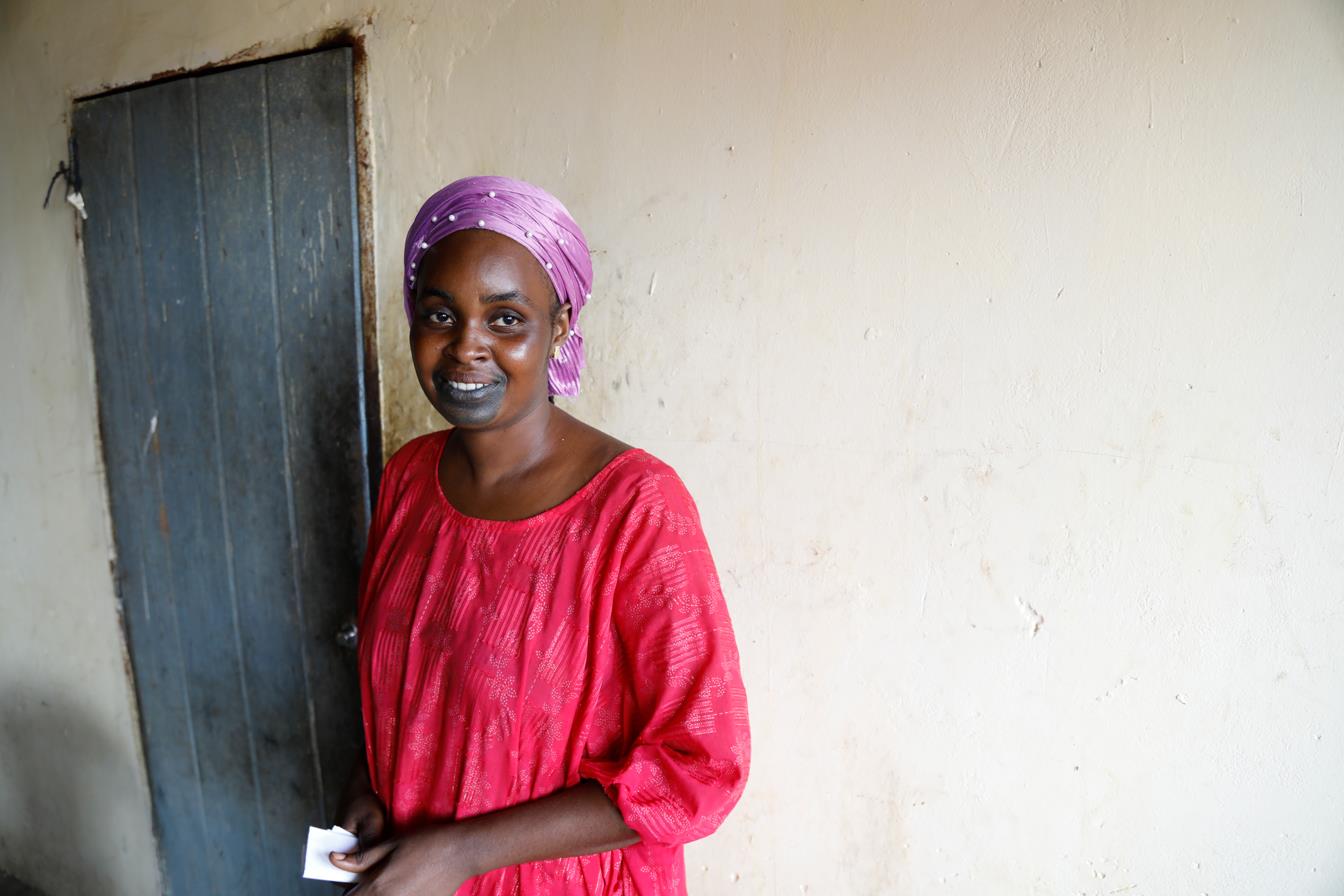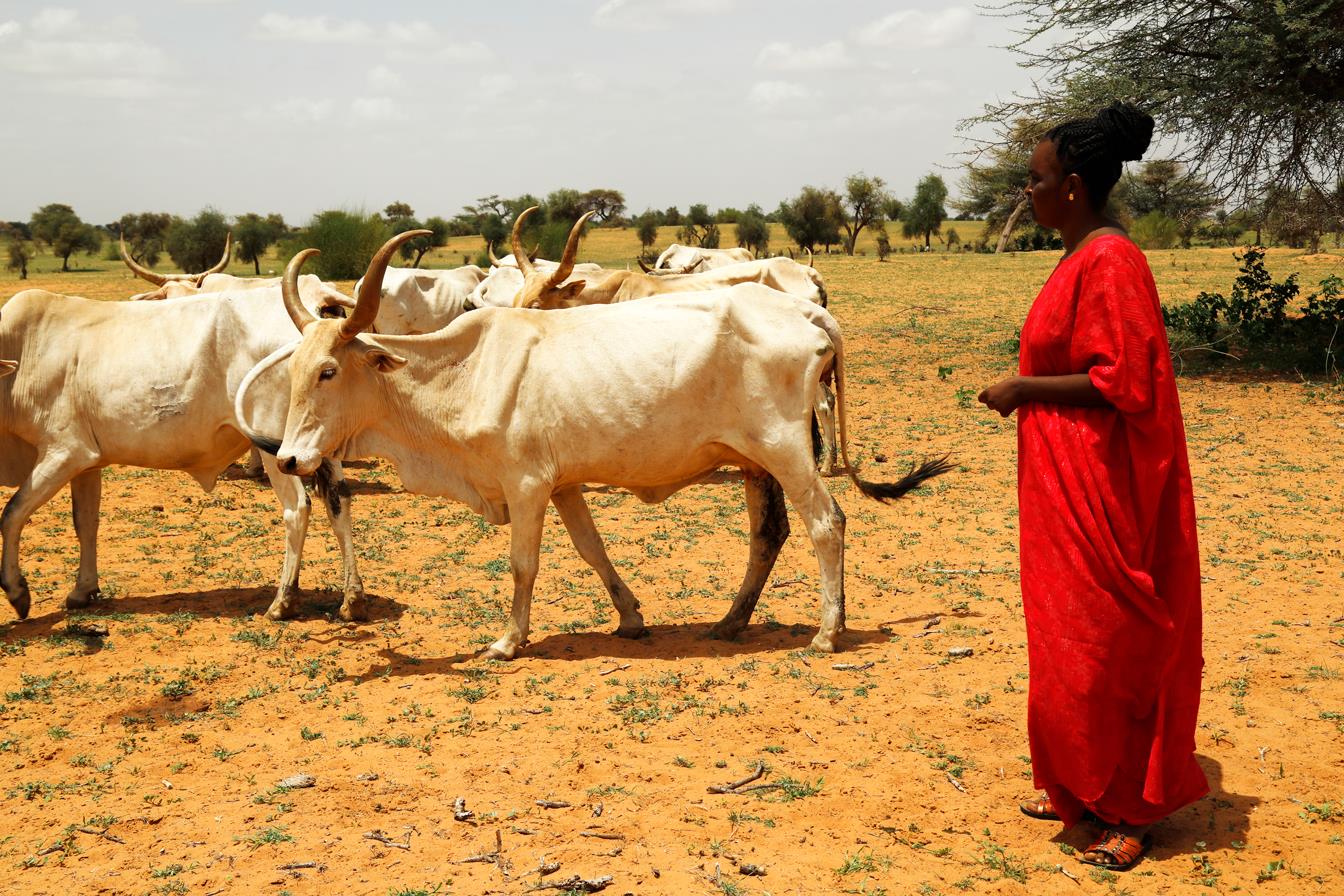
Succeeding at home in Senegal
FAO support desks for migrants and returnees help create other options if things don’t go as planned
One FAO project in Senegal supports returnees and rural youth in communities prone to migration in starting their own agribusinesses by giving them training in farming and entrepreneurial skills and facilitating access to markets and finance. ©FAO
15/12/2022
Just over a decade ago, it seemed to Abdoulaye Wade that life was too precarious. Education was becoming a goal beyond his reach, and opportunities in his native village in Bonconto, Senegal were too limited. So he decided to try his luck at migrating to Europe. It was to be the beginning of a journey that didn’t turn out as he hoped.
Lacking cash for an attempt to make it to Europe in one go, he first worked in a restaurant in the eastern Senegalese town of Tambacounda for three years, saving up enough to embark on an epic journey through Mali, Benin, Nigeria, Chad and finally Libya. From there, he made several fruitless attempts to reach Europe by boat, but each time ended up facing harsh conditions in prison. In 2020, eight years after having left, he decided to return to Senegal.
Back in his home country, things started to change for Abdoulaye. He got married and started his own cattle fattening and market gardening business.
His return came just as FAO started a new project in Bonconto to help returning migrants reintegrate socio-economically. The project supports returnees and rural youth in communities prone to migration in starting their own agribusinesses by giving them training in farming and entrepreneurial skills and facilitating access to markets and finance.
As part of the initiative, FAO has helped returnees and prospective migrants form a single large association, advocated for their concerns to be addressed in local development plans and selected 120 young people for training and agribusiness incubation. With the support of a facilitator trained by FAO, Abdoulaye is currently working on the administrative formalities that will help him strengthen his business.
“I clearly have made a good start with my project. I am ready to work seriously so that, in the near future, I can employ young people in my project and convince them to stay in Senegal and succeed here,” says Abdoulaye.


As part of the initiative, FAO selected 120 young people, including Abdoulaye, Moussa (left/top) and Mayram (right/bottom), for training and agribusiness incubation. ©FAO
Others who took part in the trainings say they too have benefited from the experience. Mayram Kah has just come back to Senegal after following her husband to Cote D’Ivoire. She found adjusting to life there too difficult and decided to return home. Yet, once back, she found that “those who had stayed behind had moved on.” This is where the trainings helped Mayram with financing and starting a new livestock business so she too could move forward.
Reflecting back, Mayram says, “I didn’t see anything in Abidjan which can’t be done here. I can earn a good income for my family, and it helps develop our country, so that’s what I want.”
25-year-old, Moussa Ndour, also returned to Senegal after travelling through Niger to Libya, hoping to cut his reliance on his father and make extra income to support his family. He says “everybody was disappointed when I came back, because they wanted me to succeed like some of my colleagues and be able to help their relatives.” But he says his friends and family remained supportive.
He comments: “It is better to stay, because if you travel, you don’t know what can happen to you, and there’s no guarantee you’ll reach your destination.” He says he remains troubled by the sight of unburied bodies in the desert on his return journey. But having received training from FAO in agribusiness, poultry breeding and market gardening, he concludes, “Young people can make a good living here from agriculture, but it depends on the conditions.”

FAO is committed to giving rural people, especially youth, decent work opportunities to make migration a choice. ©FAO
Senegal had historically been a country of destination in the West Africa region, but with population growth and underemployment, it has now become a country of transit and outmigration. The project, funded through FAO’s main donor pool, the Flexible Voluntary Contribution (FVC), has already made an impact especially by raising awareness among local policy makers of the links between migration, agriculture and rural development. It has also set up municipal offices in local communities to support migrants’ businesses.
One of the most impactful and innovative aspects is the establishment of the BCAOS (Bureaux Communaux d’Accueil, Orientation, et de Suivi). These are support desks aimed at potential migrants, members of the diaspora and returnees. They provide assistance for agribusiness activities, the socio-economic reintegration of returning migrants as well as act as a general point of reference for any migration-related questions. These BCAO facilitators were the ones who selected Abdoulaye, Mayram and Moussa to take part in the training and then followed up with them throughout their individual projects, offering them tailored support in their ventures.
As the project unfolds, FAO is committed to giving rural people, especially youth, decent work opportunities to make migration a choice and enhance its positive impact on rural communities.
Related links
Learn more
- Website: FAO country profile: Senegal
- Website: FAO & migration
- Website: Flexible Voluntary Contribution (FVC)
- Story: Returning to make rural areas in Tunisia flourish

